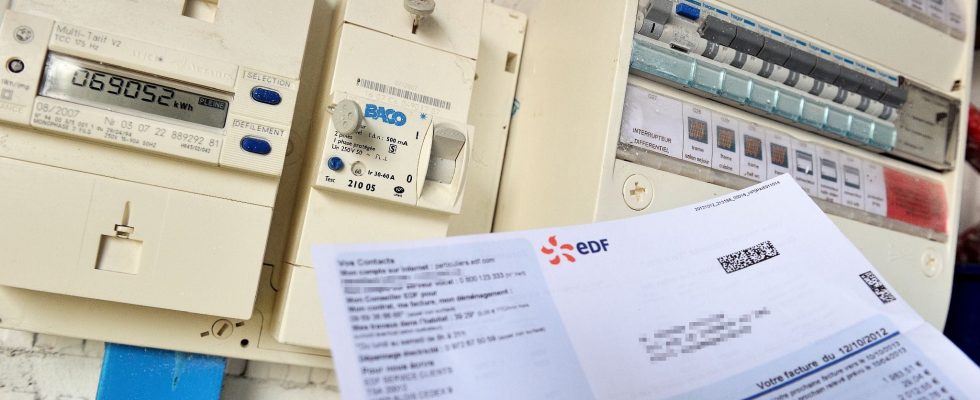This is a topic that is animating the legislative campaign. The reduction in the price of electricity must go through “a targeted reduction” in taxation, according to a special report from the Senate published on Thursday, July 4, noting that “a general and undifferentiated reduction in VAT would be very costly for our public finances and particularly unfair.”
According to the Senate inquiry committee on electricity, the VAT rate should be reduced from 20% to 5.5% for household “basic consumption”, defined by a certain volume, and left at 20% beyond that. Added to the establishment of EDF nuclear contracts, this proposal would reduce the French electricity bill by more than 40% for basic consumption, the report indicates.
At the initiative of the centrists, this cross-party commission, set up at the end of an energy crisis that saw bills soar in 2022, heard more than 140 people in six months. This report comes at a time when several parties have expressed their position on this subject: the RN in particular promises to reduce VAT on energy to 5.5% in an undifferentiated manner. The Senate report recommends targeting this reduction.
“The idea is to lower them in a targeted way and not in a general way because that could be very costly, and that is not fair,” centrist Vincent Delahaye told an AFP journalist.
The proposed reduction would concern the “basic consumption” of a household, i.e. 4.5 megawatt hours per year (MWh/year) if there is no electric heating and 6 MWh/year with electric heating. Below this volume, VAT would be reduced to 5.5%, the excise duty on electricity would increase from the current 21 euros to 9.5 euros/MWh, and the contribution d’acheminement (CTA) would be eliminated.
“Everyone benefits from it, up to a certain volume, which we could call basic consumption, for lighting, cooking… Afterwards, if you have a heated swimming pool or something else, then we don’t help you particularly,” explains Vincent Delahaye.
According to him, this measure would cost 3.5 billion euros per year compared to 12 billion for a general reduction, estimates Bercy. The report also supports the establishment of contracts with EDF for its existing nuclear power, at 60-65 euros/MWh. These would be CFD contracts (“contract for difference”), with, depending on the market price level, a guaranteed price or on the contrary, the surplus being paid to the State.
“Energy programming”
For a household in a four-room apartment heated by electricity consuming 6 MWh/year, this would be 600 euros less on the annual bill, according to the senators. And nearly 7,000 euros less for a baker consuming 99 MWh. The report also looks at tomorrow’s electricity production, while needs are expected to increase by 38% by 2035 (up to 615 TWh per year) and to 700 TWh in 2050.
By 2035, France will have to ensure an “optimised extension” of its nuclear power and “a reasonable growth” of renewable capacities, estimates the report, voted unanimously by the 23 members of the commission minus the Green elected representative.
By 2050, it will be “necessary to extend current power plants beyond 60 years” and build 14 reactors – a number already announced by the government. Depending on the capacity to do so, national electricity production would be 700-850 TWh in 2050, with 52% to 61% provided by nuclear power, the report also says.
As for renewables (wind, solar), “the more significant the electricity mixes include them, the higher the average production cost”, due to the need for investment in networks, underlines the report, which calls for “optimising” network modernisation plans. Finally, the commission warns of “the risk, too little mentioned, of a scarcity of natural uranium in the fairly near future”, if certain countries relaunch nuclear power as announced, and calls for “relaunching research into fast neutron reactors as quickly as possible” to “recycle our own waste”. “France needs long-term energy planning more than ever”, the Senate therefore believes.
The government had given up on submitting the subject to Parliament due to lack of a majority. “We intend to put the subject back on the agenda,” Vincent Delahaye says today. “We may have to let the electoral fever die down. But these are subjects on which we can reach consensus, as long as we think about the figures.”
